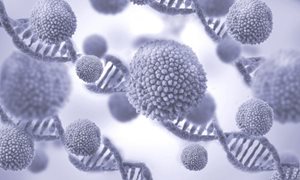
TropIQ Health Sciences, a Radboudumc spin-off, has received a 1.3 million USD grant from the Bill & Melinda Gates Foundation to track down new mosquito repellents. Agents that repel - or attract - mosquitoes could play an important role in fighting malaria, dengue and other mosquito-borne diseases. In this research project TropIQ cooperates with AI-scientists and researchers from the University of Washington.
Each year about 90 million people contract dengue (dengue fever) from mosquito bites. The estimated number of malaria infections is over 200 million per year. About half a million people die from it. Combating mosquitoes transmitting these diseases therefore has a high priority. One way to contribute is to develop new, better mosquito repellents.
Slowing the spread
That is exactly what TropIQ Health Sciences, AI researchers and the University of Washington aiming for. Marnix Vlot, who coordinates the research program at TropIQ: "The current mosquito repellents, such as DEET, are certainly not optimal. With a better repellent, we can help slowing down the global spread of mosquito-borne diseases."
The Nose in the Machine
AI researchers have been studying how humans perceive smell and how to predict the outcome based on the molecular structure of the chemical compounds of those smells. To do so, they developed state-of-the-art machine learning algorithms. Together with these AI researchers, TropIQ will now build machine learning models that predict how mosquitoes respond to a variety of volatile chemicals they smell. That model will then be used to find mosquito repellents. Also of interest are attractants, to decoy mosquitoes.
Amazing discovery
In order to protect American soldiers from malaria during World War II, there was a great need for insect repellents. An enormous research program was set up, which led, among other things, to the discovery of DEET (N,N-diethyltoluamide). After some years most of the research was forgotten. The research results have now been discovered again. Vlot: "Really a great find, because nowadays it would cost many millions to generate this knowledge. It gives us a head-start, because we now immediately can start training our machine learning algorithms with this regained knowledge."
Looking inside mosquito brains
A big advantage is that mosquito repellents in totally new chemical classes are easier to find with this approach. With more traditional search technologies, it’s more likely you’re going to find compounds that closely resemble already known repellents, often including their drawbacks as well. New active compounds are not only useful to consumers, but may also offer new insights into how mosquitoes smell and how those smells translate into changes in mosquito behavior. Vlot: "Researchers at the University of Washington are experts regarding the neurophysiology of mosquitoes. They will study how the mosquito's nervous system processes different odors – different volatile chemicals - by mapping both the neural and behavioral responses of the mosquito."
Reducing disease burden
This project now combines artificial intelligence, TropIQ's expertise in high-throughput mosquito assays, and the University of Washington's expertise in sensory neurophysiology of mosquitoes. Vlot: "Together it provides an ideal infrastructure for finding new agents that can reduce the mosquitoes’ caused burden of disease."
-
Want to know more about these subjects? Click on the buttons below for more news.
Related news items

Micro-Cosmos helps patient unwind during hospitalization
10 February 2022 Nijmegen-based Micro-Cosmos is a start-up that makes retractable hoods to speed up the recovery of hospitalized patients. go to page
LUMO Labs and Oost NL invest in Aiosyn Investment accelerates development of artificial intelligence platform to improve diagnostics
7 February 2022 Aiosyn, a spin-off from Radboudumc, has received an investment from LUMO Labs. Oost NL is a co-investor. go to page
T-Guard can reset immune system
1 December 2021 For 20 years, the Nijmegen based Radboudumc spin-off company Xenikos has been working on a drug that can reset the immune system. This reset will save lives of seriously ill patients. Now, after years of hard work, the moment of truth has arrived for T-guard. go to page
Dutch-Nordic Alliance for Precision Cancer Medicine launched
26 November 2021 The Nordic countries (Denmark, Sweden, Norway, and Finland) are together setting up national clinical precision cancer trials modelled on the very successful DRUP trial in the Netherlands. go to page
BRAINMODEL: precision medicine for brain disorders
25 October 2021 A team of researchers from Radboudumc, VU Amsterdam and other institutes is going to look for new and better ways to heal developmental disorders in the brain. go to page